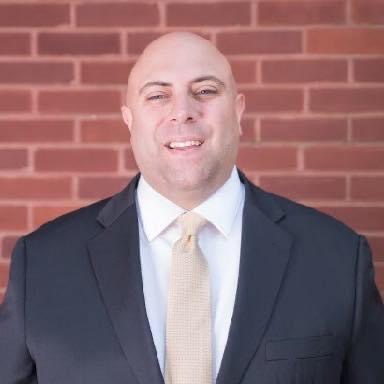
Rhode Island’s shortage of home care workers is about to get even worse. A COVID-19 vaccine mandate for healthcare workers that takes effect Oct. 1 is already sidelining some workers. That’s according to the Rhode Island Partnership for Home Care, which represents 40 licensed home care and nursing agencies across the state.

“The first wave of resignations took effect today,” Nicholas Oliver, the Partnership’s executive director, told McKnight’s Home Care Daily on Wednesday. “We’ve already lost a couple hundred staff members and we project that could go higher than 700 based on what we know today.”
On Aug. 10, Rhode Island Gov. Daniel McKee (D) mandated vaccinations for all healthcare workers, including those employed by home care agencies licensed by the state’s health department. Beginning this week, unvaccinated staff must be tested twice a week for the virus and must be fully vaccinated by the beginning of October. If they don’t get the vaccine by then, they won’t be allowed to work.
Oliver estimates only about 8% of the state’s 8,000 nursing assistants, therapists and support staff working for licensed home care agencies remain unvaccinated. He said many of those who haven’t gotten the shots are waiting because of medical reasons.
“The bulk of them are not resisting for the sake of resisting. They are resisting because they are under the care of a physician,” Oliver explained.
Rhode Island isn’t the first state to face a backlash from healthcare workers on vaccine mandates. Last weekend, hundreds of people gathered at the state Capitol in Olympia, WA, to protest a vaccine mandate for state employees and healthcare workers. Two weeks ago, healthcare workers descended on Maine’s State House, calling out Governor Janet Mill’s (D) requirement that they be vaccinated against COVID-19.
The home care, home healthcare and hospice industries remain divided on vaccine requirements for workers. The National Hospice and Palliative Care Organization is in favor of them. But the National Association for Home Care & Hospice and the Home Care Association of America so far haven’t spoken out in favor of vaccine mandates. Both associations, however, encourage workers to get the shots.
Like many states with an aging population, Rhode Island was struggling to find enough workers to care for homebound patients before the pandemic. Oliver worries the mandate will exacerbate that problem. He thinks agencies will not only lose unvaccinated workers, but vaccinated workers who could get lured away to better paying jobs.
“This is a double hit for home care, which is, unfortunately, the lowest-reimbursed setting. They are losing staff who cannot get vaccinated and are also losing staff that are marketable because they are vaccinated,” Oliver said.
For now, the Rhode Island Partnership for Home Care is talking to both the governor’s office and the state’s public health director on a possible medical exemption that could allow some home care workers to continue working until they can be vaccinated later.
This article originally appeared on McKnight's Senior Living



